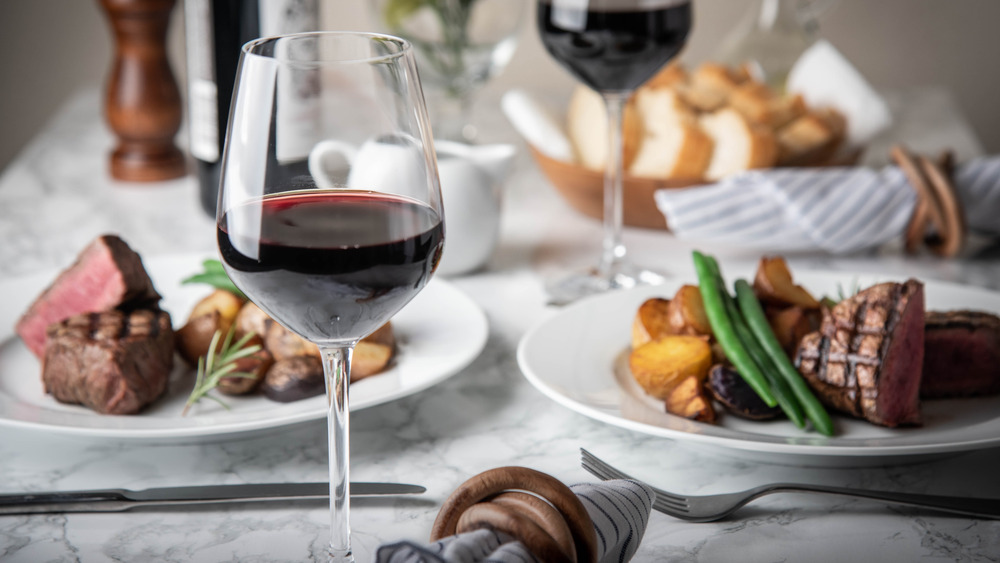The Major Wine Pairing Rule You Can Stop Worrying About
Choosing the right wine to have with a meal can often feel like more of a scientific endeavor than a pleasant search for delicious flavors. There's no shortage of dogmatic guidelines about what wine we should be drinking with our food, but it's time to put them aside. For example, we've all heard that it's best to pair red wine with red meat, and white wine with white meat or fish, but thankfully this rule is increasingly considered outdated (via The Spruce Eats). For a more nuanced take, Wine Folly has a list of nine tips for pairings, including looking at acidity, sweetness, and congruent versus contrasting flavors.
While wine certifications such as the WSET generally involve learning pairings based on testable characteristics explained by elements of taste and science, for the average wine drinker, finding a pairing can seem stressful. Since the world of wine can be so complex, it is easy for casual consumers to think that their knowledge is limited and to leave all of the decision-making to the experts.
Although suggestions can be welcome, and a particular pairing might even be outstanding, taste is incredibly personal. Instead of being guided by someone whose tastes you don't know, it is valuable to develop a better idea of your preferences based on experience (via Eater). Remember that even if something is considered "the perfect pairing", it won't taste that way if it involves a hearty red wine when you only drink white.
One wine choice won't ruin the meal — here's what to consider instead
Not only does everyone have their own preferences, but specific contexts will also dictate how flavors are received. Celebratory moments call for sparkling wine regardless if it's the "ideal pairing." Likewise, you might choose to share a bottle of Chianti with a friend because it reminds you of a trip to Tuscany you took together, even if one of you is eating fried chicken and the other fish. Similarly, Eater points out that the overall vibe is just as important as the food, such as trying an experimental orange wine with a foodie friend and sticking to a classic with your parents.
Given that many cuisines involve sharing an assortment of small plates, chances are that a wine will never be "perfect" with each individual flavor. However, if you choose something you enjoy drinking, which fits the atmosphere, your personal palate, and makes you happy, then you can't go wrong (via Eater). While a food and wine perfectionist might get upset with an imperfect pairing and deem their meal ruined, the average person should be able to find some pleasure in savoring food and wine in good company. So forget about rules and pairing charts — your wine choice won't ruin the meal. Instead, pick out something that you and the people present actually want to drink!

